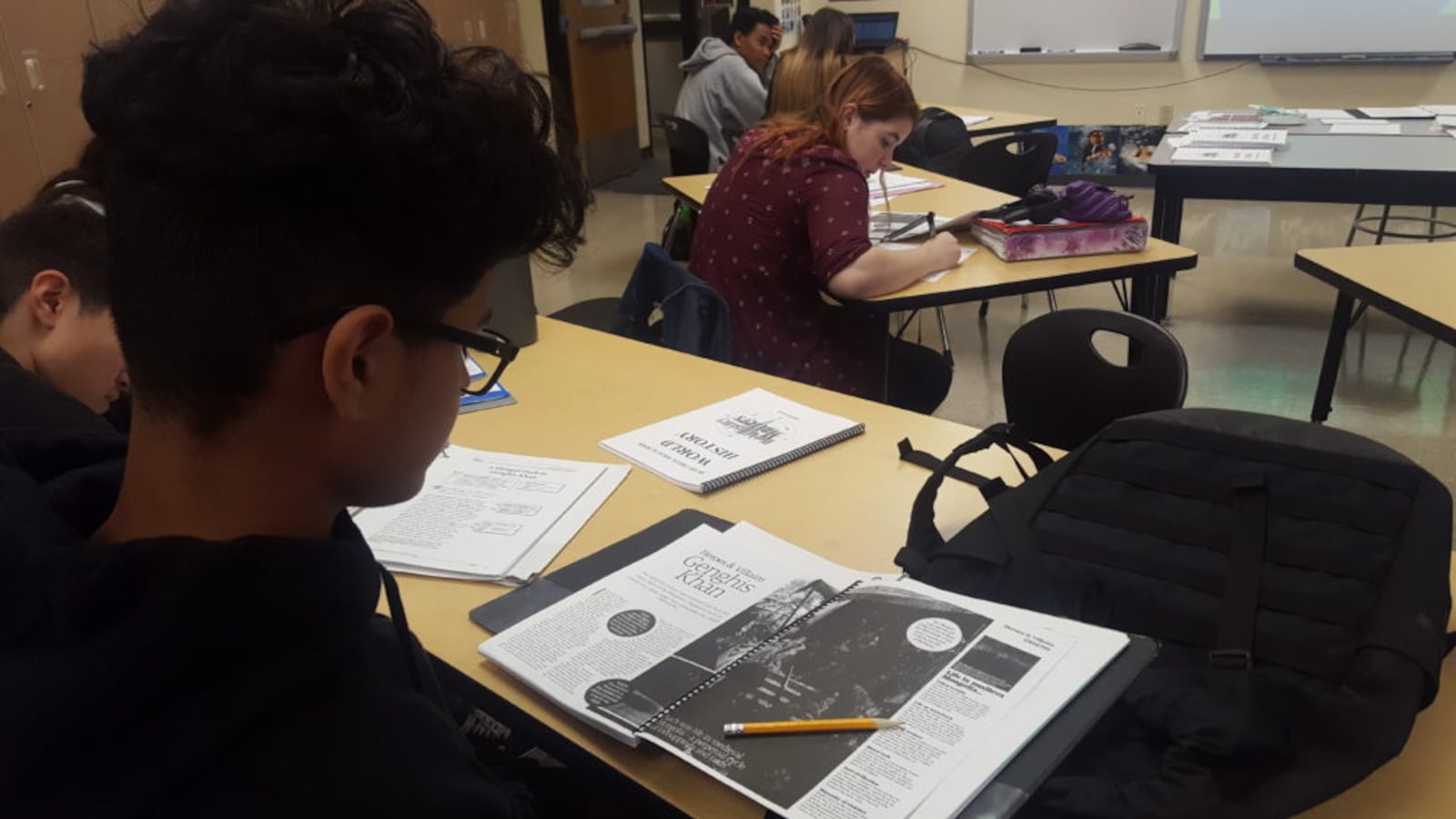When Prasanga Barakoti first arrived in the U.S. in 2012, he shied away from speaking with others because of his language barrier.
Now, a sophomore at Bear Creek High School, Barakoti, originally from Nepal, speaks with almost no accent, has opened up socially, and is excelling in school. He credits it to the English as a Second Language services, or ESL, that he has received at the high school.
“ESL has given me a chance to really show who I am,” Barakoti said. “I try to communicate with as much people as possible and try to make connections with them.”
Bear Creek High School in Jeffco was celebrated Tuesday for the high achievement of students like Barakoti who speak English as a second language.
Nonprofit advocacy group A-Plus Colorado released a report analyzing state data on the performance of students identified as English language learners, both in becoming proficient in English and in learning academic content. The report highlighted schools like Bear Creek where non-native English speakers are performing better than peers in the rest of the state.
The report also highlighted nearby Bear Creek K-8 for having one of the highest numbers of students on track to becoming fully English proficient.
The report also focused on recommendations for how policymakers and educators might learn from what is working well in different schools across the state.
Among the recommendations, the report asks the state to track progress over time to study the long-term success of students in various programs. The report also recommends the state better fund services for English learners, while tracking how districts use those dollars.
“There are instances where schools with significantly more students qualifying for free or reduced-price lunch, and with more emerging multilingual students are receiving fewer school-based dollars than schools serving their wealthier, and native-English speaking peers,” the report states.
These are the recommendations for school districts:
- Provide teachers and staff the tools to use data for instruction.
“This means ensuring teachers can see and use ACCESS [a test for English proficiency] results and connect them to other measures of academic progress to tailor instructional practice and support for students.” - Empower and engage families by providing access.
“Reports of student progress including results of any assessment must be made available to families in their home language.” - Support strong language development through secondary schools.
Districts should make efforts to understand why progress on English proficiency and academic subjects slows in higher grades, so they can address the challenges. - Focus on how different students are served locally.
“What works in schools where the primary home language of most emerging multilingual students is Spanish? What about when there are 40 different home languages?” Districts should push for state research to help answer these questions, the report states.
Catherine Baldwin-Johnson, Jeffco’s director of dual language programs, said Tuesday that her district team is already looking to answer some of those questions about what works for different students.
She said the district is particularly focusing on “long-term English language learners” who take longer than others to become fluent in English, and who may also be failing to meet their expected academic standards.
So far, what she’s found is that it comes down to connections with adults.
“Many of the students don’t feel welcome in schools,” Baldwin-Johnson said. “They’re disengaged, which is a school term, or they appear to be unmotivated.”
To try to combat that, she said the district has attempted to create additional classes, such as a literacy acceleration course, just for those students who are taking longer than expected to meet expectations.
And creating bonds with students in all those classes is a big priority at Bear Creek High School, students and the principal noted.
Several students, including Barakoti, said the class felt more like a family.

